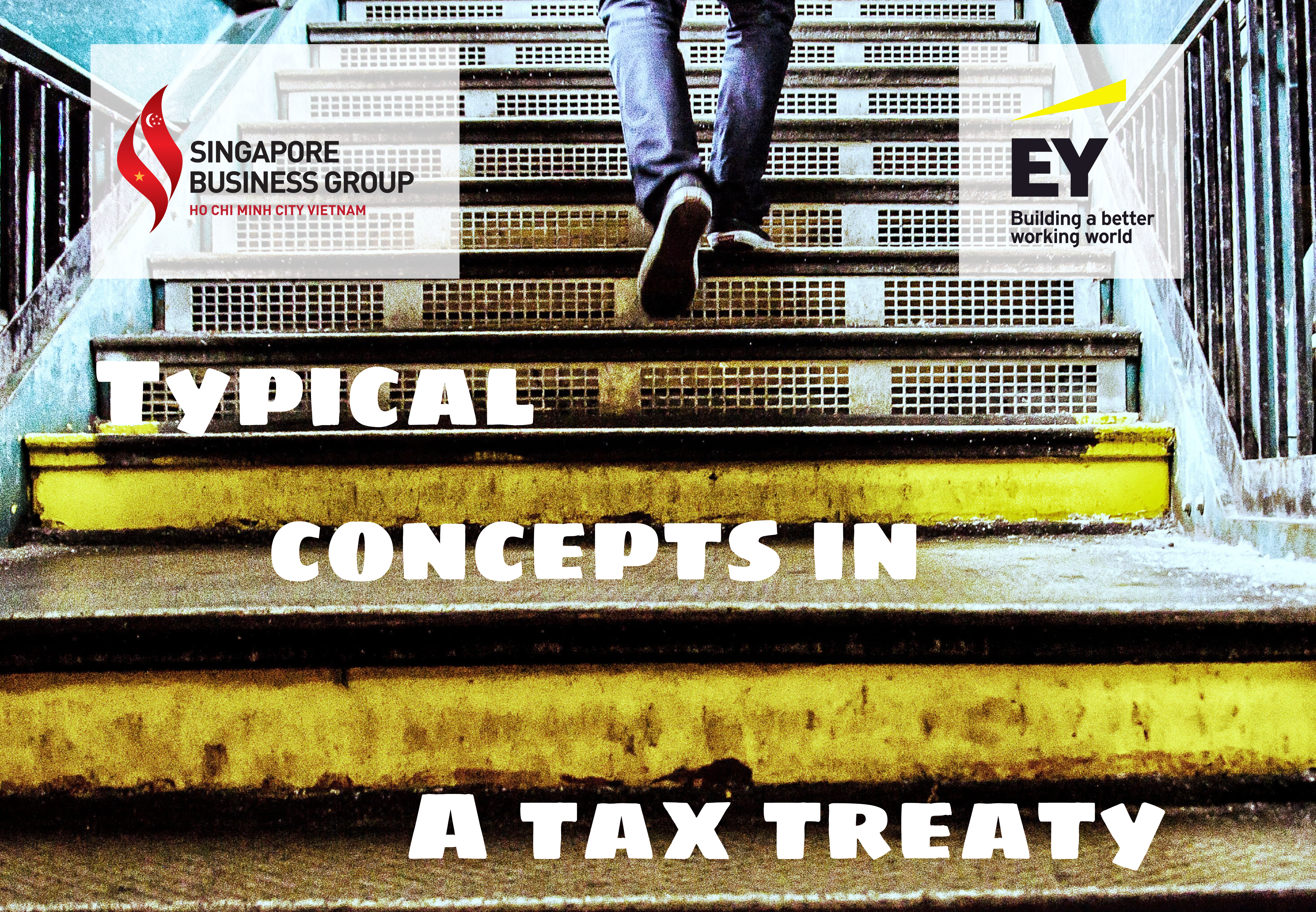SBG Corporate Member – Ernst & Young Vietnam Limited, would like to share with you the article below:
Authors:
- Thy Thi-Anh Huynh, Partner, International Tax and Transaction Services, EY Consulting Vietnam Joint Stock Company
- Wesley Chua, Manager, International Tax and Transaction Services, EY Consulting Vietnam Joint Stock Company
Typical concepts in a tax treaty
In this second part of the tax treaty series, we will look at some of the usual provisions that can be found in a tax treaty.
Permanent Establishment
Permanent Establishment (PE) is arguably one of the most important issues in international tax. Indeed, it is largely this concept that decides how much tax a company, selling goods or services from Country A to Country B, is charged by both countries. Every bilateral tax treaty uses PE as the main tool to establish taxing right for the source jurisdiction over a foreign entity’s business activities.
In the simplest form, PE can be defined as a fixed place of business through which the business of an enterprise is wholly or partly carried on, and normally includes a place of management, a branch, an office, a factory, a workshop and a place of extraction of natural resources, etc. The terms in the tax treaty may provide how the existence of a PE will be determined by the presence or extent of certain specified activities in the source jurisdiction.
Dividends, interest, royalties
Generally, the source of dividends/interest/royalties is in the jurisdiction where the company making the payment is a resident (or where a PE or fixed base bearing such payment exists). Typically, the source jurisdiction would agree under the tax treaty to limit the taxation of dividends/interest/royalties arising from its jurisdiction.
The kind of payments that are regarded as dividends/interest/royalties would be normally defined in the tax treaty. Depending on the facts and circumstances of the case, some payments may be covered under other articles of a tax treaty.
Any taxation by the source jurisdiction is typically levied through a withholding tax. In some treaty, dividends/interest/royalties may be limited or exempt from tax in the source jurisdiction if they are paid to specified parties or paid under certain specified arrangements.
Fees for technical services
Some tax treaties include a provision allowing source taxation of fees earned from providing technical services. Such taxation would typically be in the form of a withholding tax. This provision would typically limit the withholding tax rate in the source jurisdiction to a specified tax rate. The scope of technical services covered and the scope of taxation would be defined in the tax treaty itself.
Businesses should consider the cost of such taxes when doing business in the relevant jurisdiction since such a provision may lead to excessive taxation in the situation where a withholding tax on the gross amount of fees paid does not take into account the costs in providing the services.
Income from immovable property
Income derived from immovable property may be taxed in the jurisdiction where the property is located. The term “immovable property” shall generally have the meaning which it has under the law of the jurisdiction in which the property in question is situated.
Capital gain
The right to tax gains arising from the sale of shares can also be found in a tax treaty. Generally, capital gains arising from shares can be taxed in either the source jurisdiction or the residence state. Tax relief for various scenarios are available depending on the tax treaties.
Conclusion
This article provides some guidance on how to interpret provisions that are commonly found in a tax treaty. Vietnam has signed over 80 tax treaties with jurisdictions to provide certainty in tax treatment of cross-border transactions such as relief mechanism from double taxation. In the next part of this series, we will look at the Singapore-Vietnam tax treaty and share more details on what businesses should consider when doing business in both countries.
Disclaimer
The views reflected in this article are the views of the authors and do not necessarily reflect the views of the global EY organization or its member firms.
——————————————–
For more information on the article, please reach out to the contact below:
Ernst & Young Vietnam Limited
20th floor, Bitexco Financial Tower, 2 Hai Trieu Street, District 1, Ho Chi Minh City, Vietnam
Tel: +84 28 3824 5252
Web: https://www.ey.com/en_vn
Email: wesley.chua1@vn.ey.com








